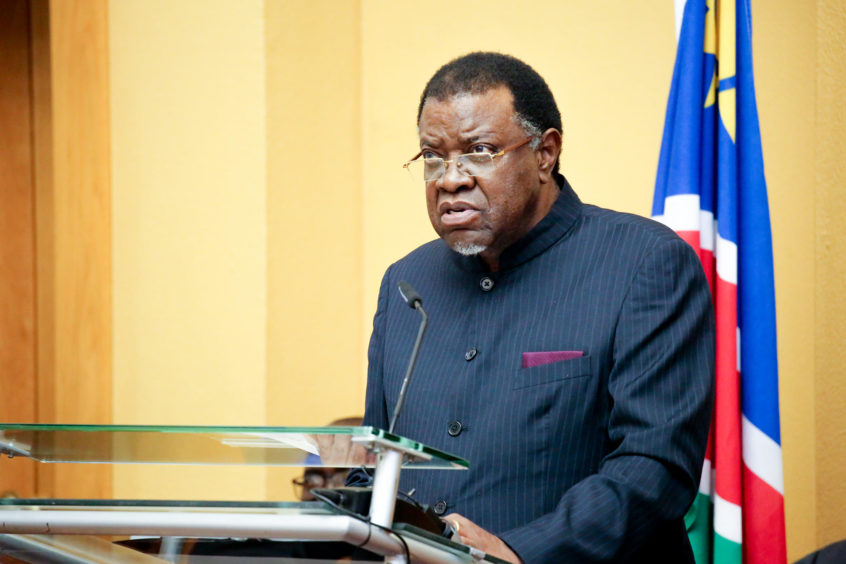
Namibian President Hage Geingob has acknowledged Reconnaissance Energy Africa’s find in the Kavango Basin.
The president was speaking on April 15 in his state of the nation address. The company announced the results the same day.
Geingob said the country was an “attractive destination” for oil and gas investors. He cited ReconAfrica’s three well drilling programme in Block 1819 and 1820 as evidence of this.
“The company is currently undertaking exploration to confirm the presence of a sedimentary basin otherwise known as a petroleum system around the general area,” the president said.
He went on to say that participants were paying “serious consideration” to environmental protection. The constitution has enshrined this and it has an impact on “all levels”, Geingob said.
ReconAfrica had previously said that it would not disclose results from individual wells. It had planned to wait until it had completed all three.
Dissent
Some dissenting voices have raised concerns on the company’s work, in a statement distributed by Extinction Rebellion.
“Until local and independent subject matter experts weigh in on Recon’s interpretation of a discovery, it’s a bit premature to claim a working petroleum system to the world,” said a former exploration and operators geologist for BP Matt Totten. “Recon didn’t even disclose the TD (Total Depth) of the well so I wouldn’t get excited about claims of a discovery until they share their data.”
There is no infrastructure in place for exports, a representative of Saving Okavango’s Unique Life (SOUL), Andy Gheorgiou, noted.
“As such, all the risks related to possible stranded assets remain on the table, or we could end up with a veritable white elephant in the Kavango. The only thing new is a slightly clearer picture there may be something in the ground, amplifying our concerns.”
In a presentation, ReconAfrica has pointed to exports via the railroad, from Grootfontein to Walvis Bay. The former hub is around 140 miles from its drilling site.
